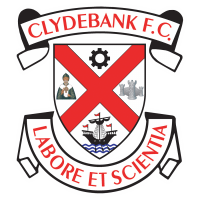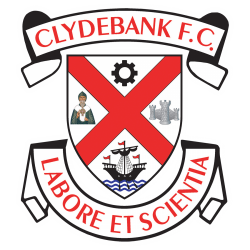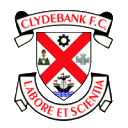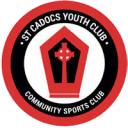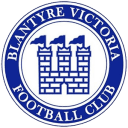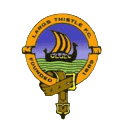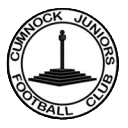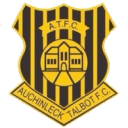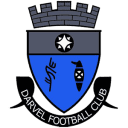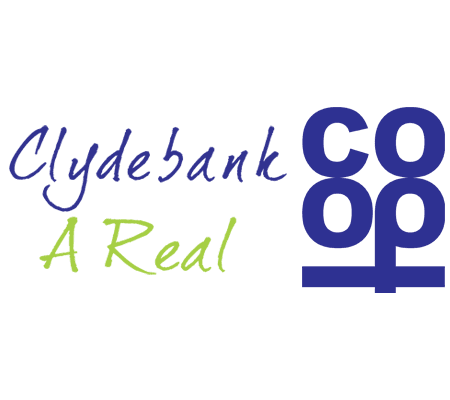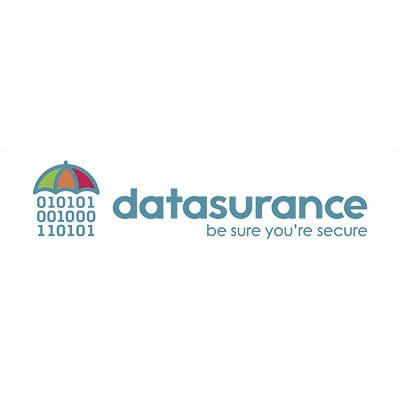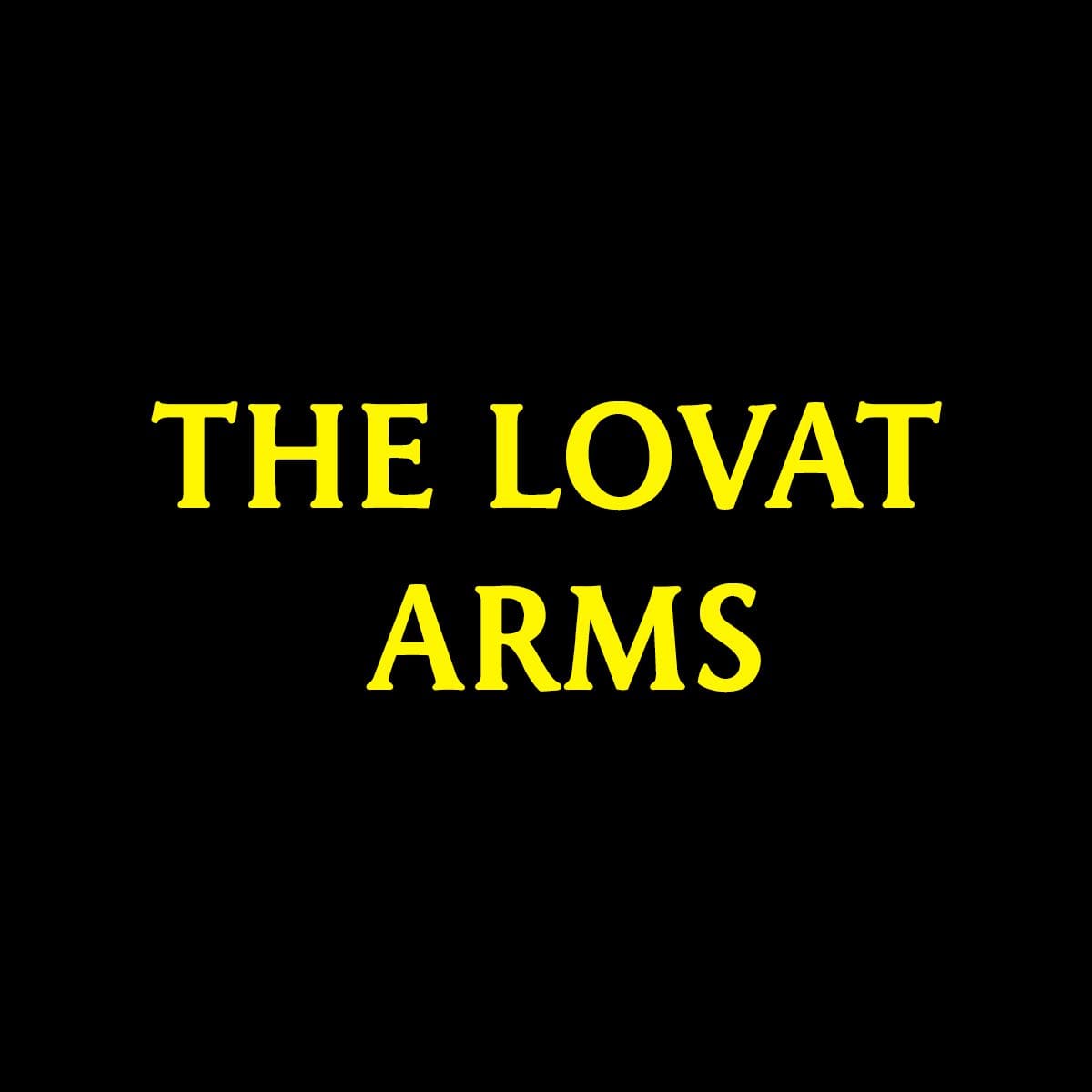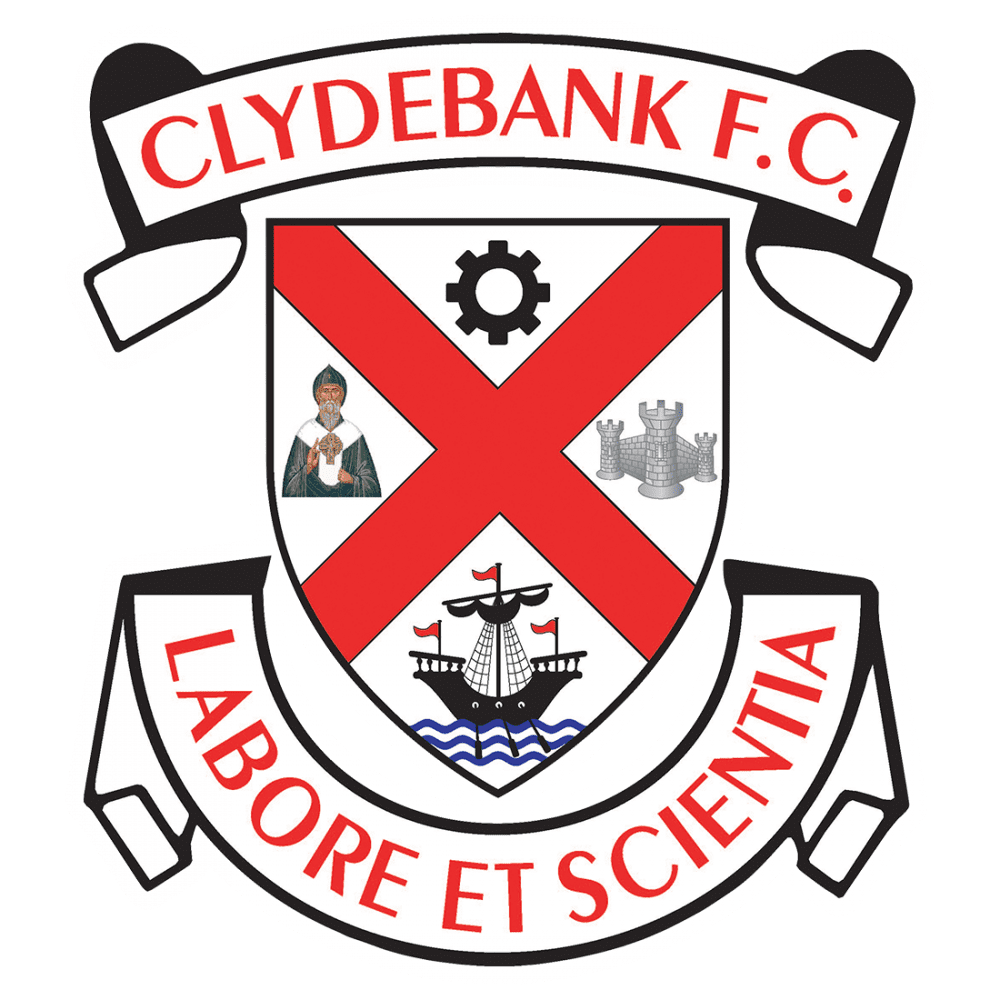MODEL RULES FOR A SPORTS CLUB COMMUNITY MUTUAL (2011 VERSION 2)
Supporters Direct
3rd Floor, Victoria House, Bloomsbury Square, London. WC1B 4SE
Sponsoring Bodies for registration purposes:
Register No:
RULES OF CLYDEBANK FOOTBALL CLUB LIMITED
Registered Under the Industrial
And Provident Societies Acts 1965–78
The development of the original Model Rules for a Supporters Community Mutual was promoted and funded by the Co-operative Party with help and advice from Co-operatives UK, Cobbetts Solicitors and Supporters Direct and their contribution is hereby gratefully acknowledged
RULES
NAME AND DEFINITIONS
1. The name of the Society is to be Clydebank Football Club Limited and it is called “the Club” in the rest of these Rules;
Clydebank is called “the Area”.
INTERPRETATIONS
2. In these Rules:
“the Act” refers to the Industrial and Provident Societies Act 1965 or any Act or Acts amending or in substitution of it or them for the time being in force;
“Address” means a postal address or, for the purposes of electronic communication, a fax number, email address or telephone number for receiving text messages;
“The Club” means the above-named club;
“The Club Board” or “the Directors” means all those persons appointed to perform the duties of Directors of the Club;
“Club Board Meeting” includes, except where inconsistent with any legal obligation a physical meeting, a meeting held by electronic means and a meeting held by telephone;
“Director” means a director of the Club and includes any person occupying the position of Director, by whatever name called;
“Electronic Means” shall include email, video links and secure authenticated website transactions.
“Employee” means anyone over the age of 16 holding a contract of employment with the Club to perform at least eight hours of work per week for the Society;
“Member” has the meaning as detailed under ‘Membership’ in these Rules;
“Person” means, unless the context requires otherwise, a natural person, unincorporated body, firm, partnership, corporate body or any representative of an unincorporated body, firm, partnership or corporate body;
“Registrar” means the Financial Conduct Authority or any successor body in function;
“Rules” means the Club’s Rulebook;
“Writing” means the representation or reproduction of words, symbols or other information in a visible form by any method or combination of methods, whether sent or supplied in electronic form or otherwise;
3. COMMUNITY BENEFIT PURPOSE
The business of the Society is to be conducted for the benefit of the community served by the Club and not for the profit of its members.
OBJECTS
4. The Club’s objects are to benefit the community by;
4.1 enhancing the social, cultural and economic value of the Club to its Communities and by acting as a responsible custodian of the club for future generations;
4.2 upholding the mutual ownership of the Club operating democratically, fairly and transparently;
4.3 ensuring the Club operates with financial responsibility enabling the Club to be run for the long term interest of the Community;
4.4 providing sporting facilities and opportunities regardless of age, income, ethnicity, gender, disability, sexuality, religious or moral belief; and
4.5 playing at the highest level possible, but always operating in a financially responsible and prudent manner.
POWERS
5. The Club may achieve these objects in whole or in part through an interest or interests in companies or societies provided that the objects of the companies or societies are consistent with the Club’s Objects.
6. In order to achieve its objects the Club may either itself or through a subsidiary company or society acting under its legal control:
6.1 buy, sell and lease property;
6.2 borrow;
6.3 grant security over its property and assets;
6.4 establish promote and maintain for the purposes of the Club any lawful fund raising scheme;
6.5 promote means to give supporters greater opportunity to invest in the Club;
6.6 promote means to give supporters greater opportunity to donate to the Club;
6.7 award pensions, allowances, gratuities and bonuses to past and present employees (including their dependents and people connected with them) of;
6.7.1 the Club;
6.7.2 any successor body of the Club; and
6.7.3 any subsidiary company or society of the Club;
6.8 set up and maintain itself or with others trusts funds or schemes (whether contributory or non-contributory) intended to provide pension or other benefits for the people referred to in the preceding sub-paragraph;
6.9 indemnify or take out and maintain insurance for the benefit of people who are or were:
6.9.1 members of the Club Board; or
6.9.2 officers; or
6.9.3 employees; or
6.9.4 trustees of a pension fund
of the Club or any subsidiary company or society of the Club against any liability which they may have as a result of their involvement with the Club or its subsidiaries;
6.10 indemnify or take out and maintain insurance for the benefit of people who are or were elected or nominated by the Club to serve on the board of any company owning or controlling the Club;
6.11 so far as permitted by these Rules take out and maintain insurance against any risks to which the Club may be exposed;
6.12 co-operate with other supporters organisations, co-operatives and societies conducted for the benefit of the community at local, national and international levels; and
6.13 do anything else which is necessary or expedient to achieve its objects.
APPLICATION OF SURPLUS
7. The profits or surpluses of the Club are not to be distributed either directly or indirectly in any way whatsoever among members of the Club but shall be applied;
7.1 to maintain prudent reserves;
7.2 on expenditure to achieve the Club’s objectives; and
7.3 to pay interest on or repaying issued share capital in accordance with the provisions of these Rules.
8. NOT USED
MEMBERSHIP
9. The members of the Club are the people whose names are entered in the register of members. The first members are the people who sign these Rules in applying for registration.
10. Membership is open to any individual, unincorporated body, firm, partnership or corporate body who or which:
a. Is a supporter of the Club; or
b. Has an interest in the game of football in the Area and is in sympathy with the objects of the Club; and
c. is 16 years of age or older;
d. agrees to attend General Meetings and to take an active interest in the operation and development of the Club and its business;
e. agrees to respect commercial confidentiality in relation to business decisions of the Club; and
f. agrees to be bound by these Rules and by Rules 3 and 7 in particular.
The Club Board shall have power to refuse membership to any person who does not in the opinion of the Club Board meet these requirements.
11. Every member holds one ordinary share in the capital of the Club. No member may hold more than one ordinary share in the Club either individually or jointly
12. The Club Board will decide and issue a form of application for membership. Members are to pay an annual subscription of such reasonable sum as the Club Board shall decide, the first payment to be made at the time of application for membership. The sum of £1 from the first payment shall be applied to purchase an ordinary share in the Club.
13. The Club Board will have the power to offer associate or affiliate status with or without payment or subscription to corporate or unincorporated bodies which support the aims of the Club. The Club may designate a share in the capital of the Club as being held on behalf of any unincorporated organisation but no-one shall be entitled to vote at any general meeting of the Club who is not a registered holder of a fully paid up share of the Club.
14. The Club Board shall have the right to offer a class of junior membership with or without payment to minors under the age of 16 but no person under the age of 16 shall be entitled to a share in the Club or be entitled to vote at any general meeting of the Club.
15. No person under the age of 16 may be an officer of the Club.
16. A corporate body or firm which is a member may by resolution of its governing body appoint any person it thinks fit to be its deputy and revoke such an appointment. A copy of any such resolution signed by two members of the governing body and in the case of a local authority by the authorised officer of the Council shall be sent to the Secretary of the Society. The deputy will be entitled to exercise all rights of membership on behalf of the corporate body including seeking election as an officer and speaking and voting at any general meeting. References in these Rules to a member being present in person include members which are corporate bodies being present through their deputy.
SHARES
17. The Club has ordinary shares and may have Capital Funding Shares in accordance with the provisions set out in Rule 22.
18. The following provisions apply to shares in the Club:
a. shares shall be withdrawable only in accordance with the provisions of these Rules;
b. shares shall not be transferable except on death or bankruptcy or with the consent of the Club Board;
c. application for shares shall be made to the Board of the Club who shall allot to members, upon their admission, the share or shares for which they have applied provided that the total number of shares allotted to any member shall not exceed the maximum shareholding permitted by these Rules or by law; and
d. shares shall be paid for in full on allotment.
ORDINARY SHARE PROVISIONS
19. The ordinary shares of the Club shall be of the nominal value of £1.00.
20. If a member ceases to be a member, the ordinary share registered in the name of that member is to be cancelled and the amount subscribed for the share is to become the property of the Club.
21. Ordinary shares shall not be withdrawable and do not carry any rights to interest, dividend or bonus.
CAPITAL FUNDING SHARE PROVISIONS
22. In order to fund its business, the Club may issue Capital Funding Shares. Capital Funding Shares may be issued in such denomination and upon such terms as the Club Board shall decide, subject to the Rules, and in particular the following provisions:
a. Capital Funding Shares shall not be withdrawable except with the consent of the Club Board;
b. The Club Board may specify a date or dates on which Capital Funding Shares may be withdrawn and may make provision for the withdrawal of different issues of shares on different dates;
c. The Club Board may pay interest to holders of Capital Funding Shares as compensation for the use of such funds, but the rate of interest shall be no higher than the Club Board considers to be necessary to attract the funding needed for the business of the Club and shall not in any event be higher than 2% above clearing bank base rate from time to time. The rate may vary within these limits between different issues of shares;
d. No withdrawal of Capital Funding Shares or payment of interest on them shall be made except from trading surpluses and any withdrawal or payment shall be at the discretion of the Club Board having regard to the long term interests of the Club, the need to maintain prudent reserves and the Club’s primary commitment to community benefit;
e. Capital Funding Shares may only be issued to members;
f. On the solvent dissolution or winding up of the Club, holders of Capital Funding Shares shall have no financial entitlement beyond payment of outstanding interest and repayment of paid-up share capital.
REMOVAL OF MEMBERS
23. A member shall cease to be a member if they:
a. fail after written demand to pay their annual subscription;
b. die (in the case of an individual);
c. cease to exist (in the case of a body corporate);
d. are the nominee of an unincorporated Society or firm which is wound up or dissolved;
e. are the nominee of an unincorporated organisation or firm which removes or replaces them as nominee;
f. are not the holder of a fully paid up share;
g. are expelled under these Rules; or
h. withdraw from membership by giving at least one month’s written notice to the Secretary;
24. A member may be expelled for conduct prejudicial to the Club in accordance with any Disciplinary Policy adopted by the Club (which is to comply with any guidance issued by Supporters Direct).
ORGANISATION
25. The powers of the Club are to be exercised by the members and the Club Board as set out in the Rules which follow.
RIGHTS AND POWERS OF MEMBERS
26. The Members have the rights and powers available to them under the law relating to Community Benefit Societies and are to decide in particular the issues specifically reserved to them by these Rules.
27. The Members may by a resolution carried by not less than two-thirds of the members voting at a general meeting but not otherwise give directions to the Club Board. A Member wishing to propose a Members’ resolution for consideration at a general meeting shall give notice in writing to the Secretary of such wish, and of the justification for, form and content of the resolution, not later than noon 28 days before that meeting is to be held. The following provisions apply to any directions given:
a. any direction must:
i. be consistent with these Rules and with the Club’s contractual, statutory and other legal obligations; and
ii. not affect the powers and responsibilities of the Club Board under Rule 28.
b. Any person who deals with the Club in good faith and is not aware that a direction has been given may deal with the Club on the basis that no decision has been given.
DUTIES AND POWERS OF CLUB BOARD
28. The Club Board is to ensure that the business of the Club is conducted in accordance with these Rules and with the interests of the community and in accordance with the Board Membership and Conduct Policy adopted by the Club (which is to comply with any guidance issued by Supporters Direct). The Club Board:
a. may exercise all the Club’s powers which are not required by these Rules or by statute to be exercised by the Club in a general meeting;
b. may delegate any of its powers to committees consisting of such of its own number (and others provided that Club Board members remain in the majority on such committees) as it thinks fit who shall, in the function entrusted to them, conform in all respects to the instruction given to them by the Club Board. The following provisions apply to any such delegation:
i. any delegation may be revoked and its terms may be varied; and
ii. the proceedings of any sub-committee shall be governed by the rules regulating the proceedings of the Club Board so far as they are capable of applying.
GENERAL MEETINGS
29. The Club shall, within six months of the end of the financial year, hold a general meeting of the Members as its annual general meeting and shall specify the meeting as such in the notices calling it. The first annual general meeting may be called by the Club Board at any time within this period. The Club is to ensure that all general meetings are accessible so as to encourage participation in them by members. All general meetings are to be held in accordance with the Club’s Standing Orders for General Meetings, which shall be determined by the Board of Directors and must comply with any guidance issued by Supporters Direct.
30. The business of an annual general meeting shall normally comprise, where appropriate:
a. the receipt of the accounts and balance sheet and of the reports of the Club Board and auditor;
b. the appointment of an auditor;
c. the election of the Club Board or the results of the election if held previously by ballot;
d. the audit of any other aspect of the performance of the Club;
e. the application of surplus; and
f. the transaction of any other business included in the notice convening the meeting.
The business of any general meeting shall comprise:
g. consideration of any member’s resolution, notice of which has been given to the Secretary in accordance with Rule 27;
h. consideration of any resolution proposed by the Board; and
i. consideration of any other business relating to the affairs of the Club which any member or the Board may wish to raise but no resolution may be put to the vote of the meeting under this item.
31. All general meetings other than annual general meetings are called special general meetings.
32. The Secretary, at the request of the Board of Directors may convene a general meeting of the Club. The purpose of the general meeting shall be stated in the application and notice of the meeting.
33. The Board of Directors upon an application by not less than 20 members or 5% of the membership, whichever is the greater, delivered to the Club’s registered office., shall convene a general meeting. The purpose of the special general meeting shall be stated in the application and notice of the meeting. No business other than that stated in the notice of the meeting shall be conducted at the meeting.
34. A special general meeting called in response to a members’ requisition must be held within 28 days of the date on which the requisition is delivered to the registered office. The meeting is not to transact any business other than that set out in the requisition and the notice convening the meeting.
35. If, within one month from the date of the receipt of the application, the Club Board has not convened a special general meeting, any three Members of the Club acting on behalf of the signatories to the application may convene a special general meeting, and shall be reimbursed by the Club for any costs incurred in convening such a meeting.
36. Notice of a general meeting is to be given either:
a. in writing; or
b. where a member has agreed to receive notice in this way, by such electronic means as the Club Board shall decide
at least 14 clear days before the date of the meeting. The notice must:
c. be given to all members and to the members of the Club Board and to the auditors;
d. state whether the meeting is an annual or special general meeting;
e. give a time, date and a place of the meeting; and
f. indicate the business to be dealt with at the meeting.
37. Any notice to a member may be given either:
a. personally; or
b. by sending it by post in a prepaid envelope addressed to the member at their registered address; or
c. by leaving at that address; or
d. (if a register of e-mail addresses is maintained by the Club and the member has notified the Club of an e-mail address) by e-mail to their registered e-mail address.
Notices or communications sent by first class post to members at their registered address are deemed to have been duly served 48 hours (excluding Sundays) after being posted. Proof that an envelope containing a notice was properly addressed, prepaid and posted shall be conclusive evidence that the notice was given. The proceedings at a general meeting are not invalid if:
e. there has been an accidental omission to send a notice to a member or members; or
f. the notice is not received by a member or members.
38. A member present either in person or by proxy at any meeting of the Club shall be deemed to have received notice of the meeting and where requisite, of the purposes for which it was called.
39. Before a general meeting can do business there must be a quorum present. Except where these Rules say otherwise a quorum is 20 members or 5% of the members entitled to vote at the meeting whichever is lower.
40. The Club Board may decide where a general meeting is to be held.
41. An auditor appointed in accordance with these Rules they shall be entitled to attend general meetings of the Club and to receive all notices of and communications relating to any general meeting which any Member of the Club is entitled to receive. The auditor shall be entitled to be heard at any meeting on any part of the business of the meeting which is of proper concern to an auditor.
42. The Chair shall facilitate general meetings. If he or she is absent or unwilling to act at the time any meeting proceeds to business then another Club Board member shall facilitate the meeting. If no other Club Board member is present or willing to act, the members present shall choose either one of their number or an independent person recommended by the Club Board to be the Chair for that meeting. If a quorum is not present within half an hour of the time the general meeting was due to commence, or if during a meeting a quorum ceases to be present, the Chair must adjourn the meeting for at least 7 days. If within half an hour of the time the adjourned meeting was due to commence a quorum is not present, the Members present shall constitute a quorum.
43. The Chair of a general meeting may adjourn the meeting whilst a quorum is present if:
a. The meeting consents to that adjournment; or
b. It appears to the Chair that an adjournment is necessary to protect the safety of any persons attending the meeting or to ensure that the business of the meeting is conducted in an orderly manner.
44. When adjourning a meeting the Chair must specify the date, time and place to which it will stand adjourned or that the meeting is to continue at a date, time and place to be fixed by the Club Board.
45. If the meeting is adjourned for 14 days or more, at least 7 clear days’ notice of the adjourned meeting shall be given in the same manner as the notice of the original meeting.
46. No business shall be transacted at an adjourned meeting other than business which could properly have been transacted at the meeting if the adjournment had not taken place.
47. Each Member shall have one vote on any question to be decided in general meeting.
48. A resolution put to the vote at a general meeting shall be decided on a show of hands unless a paper poll is demanded in accordance with these Rules. Unless a paper poll is demanded, a declaration by the Chair that a resolution has on a show of hands been carried or lost recorded in the minutes of the proceedings of the general meeting shall be conclusive evidence of the fact without proof of the number or proportions of the votes recorded in favour or against such resolution.
49. In the case of equality of votes whether on a show of hands or a poll, the Chair shall not have a second or casting vote and the resolution shall be deemed to have been lost.
RESOLUTIONS
50. Decisions at general meetings shall be made by passing resolutions:
a. The following decisions must be made by extraordinary resolution:
i. Any amendment to the Society’s Rules;
ii. The decision to wind up the Society.
b. All other decisions shall be made by ordinary resolution.
51. An extraordinary resolution is one passed by a majority of not less than 75% of votes cast at a general meeting and an ordinary resolution is one passed by a simple majority (51%) of votes cast
52. Resolutions may be passed at general meetings or by written resolution. A written resolution may consist of several identical documents signed by one or more Members.
53. A proxy may be appointed and the appointment may instruct the proxy to vote in a particular way or as he or she thinks fit. A proxy is to be appointed as follows:
a. in writing;
b. in any usual form or any other form which the Club Board may approve;
c. under the hand of the appointor or of their attorney duly authorised in writing; and
d. by depositing the appointment document at the registered office of the Club or at such other place within the United Kingdom as the Club shall specify not less than two clear days before the day fixed for the meeting at which the proxy is authorised to vote. Where the appointment document is exercised by an attorney on behalf of the appointor, the authority under which it is executed or a copy of such authority certified notarially or in some other way approved by the Club Board is to be lodged with the appointment document.
54. If this procedure is not followed the appointment of the proxy will be invalid.
55. The following further rules apply to proxies:
a. No person other than the Chair of the meeting can act as proxy for more than 3 members.
b. Any question as to the validity of a proxy is to be determined by the Chair of the meeting whose decision is to be final.
c. A proxy need not be a member of the Club.
56. A vote given or poll demanded by proxy or by the duly authorised deputy of a corporate body, shall be valid unless notice of termination of the authority is received by the Club at the registered office or at any other place at which the instrument of proxy was duly deposited before the commencement of the meeting or adjourned meeting at which the vote is given or the poll demanded.
57. No objection shall be raised to the qualification of any voter except at the meeting or adjourned meeting at which the vote objected to is tendered. Any objection made in due time about any vote whether tendered personally or by proxy is to be determined by the Chair of the meeting, whose decision is to be final. Every vote not disallowed at the meeting will be valid.
POSTAL BALLOTS
58. Where:
a. the Club Board considers that a significant issue has arisen which should be determined by the members of the Club the issue shall be determined by a postal ballot of the members of the Club conducted in accordance with such procedure as the Club Board shall determine subject to the following principles:
i. notice of the ballot shall be given to each member of the Club in the same way as notice of a meeting is to be given;
ii. the notice must set out clearly the issue to be decided;
iii. sufficient information must be provided to members to enable an informed decision to be made; and
iv. the date by which the voting papers are to be returned must be clearly stated.
b. In any case where a postal ballot is appropriate the Board may make such a provision as it thinks fit to permit notice of the ballot to be given and voting to be conducted by electronic means.
CONSTITUTION OF THE CLUB BOARD
59. The Club shall have a Board of Directors comprising not less than 9 and not more than 18 persons.
60. The initial Directors of the Club from registration until the first Annual General Meeting shall be appointed by the members on whose application the Club is registered.
61. Only Members of the Club who are aged 16 years or more may serve on the Board of Directors.
62. Elected directors shall be elected only in accordance with the Election Policy adopted by the Club.
63. Members of the Club Board of Directors will normally serve for periods of three years in accordance with the Board Membership and Conduct Policy.
64. At the first Annual General Meeting all members of the Board of Directors shall stand down. A retiring Club Board member shall be eligible for re-election.
65. At the annual general meeting following the first annual general meeting of the Club, one third of the members of the Club Board first elected by the members (to be chosen by lot) will resign from office. Thereafter, the one third of the members of the Club Board elected by the members who have served the longest at the date of the annual general meeting will resign. If at any time the number of elected directors is not divisible by three, the Club Board shall decide the number of elected directors to resign in accordance with this rule, which shall be approximately one third of the total number.
66. New Directors shall be elected in accordance with the Club’s Election Policy including by authenticated electronic means and postal ballot. The Club’s Election Policy is to comply with any guidance issued by Supporters Direct.
67. The Club Board may at any time co-opt any Member of the Club or the representative of an organisation which is a Member to fill a casual vacancy in the Board of Directors, provided that at no time shall more than one-third of the members of the Club Board be co-opted members. A casual vacancy shall be deemed to exist if the number of Directors should drop below the minimum prescribed in these Rules or below the number elected at the preceding Annual General Meeting.
68. The Club Board may co-opt up to 3 external Directors to the Club Board in addition to the number of Directors specified in these Rules provided that at all times the total number of external directors and Members co-opted under Rule 67 shall be in the minority. A Director co-opted in accordance with this Rule shall serve for a fixed period determined by the Club Board at the time of co-option, subject to a review at least every twelve months, may be removed from office at any time by a resolution passed by a majority of the members of the Club Board, and may be remunerated in an amount (to be disclosed in the published accounts) from time to time, as fixed by the Club Board. External Directors shall be selected by virtue of their specialist skills and experience considered to be of benefit to the Club.
69. In the event that the size of the Club Board should drop below the minimum number of members prescribed in these Rules, the Directors may act to increase their number or to call a General Meeting of the Club, but for no other purpose.
70. The Club Board shall ensure that the business of the Club is conducted in accordance with these Rules and with the interests of the community and in accordance with any bye-laws, policies or procedures adopted by the Club.
CLUB BOARD MEETINGS
71. Any two Directors may, and the Secretary on the requisition of a Director shall, call a meeting of the Board of Directors by giving reasonable notice of the meeting to all Directors. Notice of any meeting of the Board of Directors must indicate the date, time and place of the meeting and, if the directors participating in the meeting will not be in the same place, how they will communicate with each other.
72. The Board of Directors may meet together for the despatch of business, adjourn and otherwise regulate their meetings as they think fit. All Board meetings are to be held in accordance with the Club’s Standing Orders for Board Meetings, which shall be determined by the Board of Directors and must comply with any guidance issued by Supporters Direct.
73. A Director is able to exercise the right to speak at a meeting of the Board of Directors and is deemed to be in attendance when that person is in a position to communicate to all those attending the meeting. The Directors may make whatever arrangements they consider appropriate to enable those attending a meeting of the Board of Directors to exercise their rights to speak or vote at it including by electronic means. In determining attendance at a meeting of the Board of Directors, it is immaterial whether any two or more Directors attending are in the same place as each other.
74. Questions arising at any meetings shall be decided by a majority of votes cast. For the avoidance of doubt, abstentions are not to be classed as votes cast. In the case of an equality of votes the Chair shall have a casting vote.
75. A written resolution, circulated to all Directors and signed by a simple majority (51%) of Directors, shall be valid and effective as if it had been passed at a Society Board meeting duly convened and held. A written resolution may consist of several identical documents signed by one or more Directors.
76. The Board of Directors may, at its discretion, invite other persons to attend its meetings with or without speaking rights and without voting rights. Such attendees will not count toward the quorum.
QUORUM
77. The quorum necessary for the transaction of business at a meeting of the Board of Directors shall be 50% of the Directors or 3 Elected Directors, whichever is the greater.
78. If at any time the total number of Directors in office is less than the quorum required, the Directors must not take any decisions other than to appoint further Directors or to call a general meeting so as to enable the Members to appoint further Directors.
CHAIR
79. The Chair shall facilitate meetings of the Board of Directors. If he or she is absent or unwilling to act at the time any meeting proceeds to business then the Directors present shall choose one of their number to be the Chair for that meeting. The appointment of a Chair shall be the first item of business at the meeting.
DECLARATION OF INTEREST
80. A Director shall declare an interest in any contract or matter in which s/he has a personal, material or financial interest in accordance with the Club’s Board Membership and Conduct Policy.
EXPENSES
81. The Club may pay any reasonable expenses in accordance with the Club’s Board Membership and Conduct Policy.
TERMINATION OF A DIRECTOR’S APPOINTMENT
82. A person ceases to be a Director of the Club as soon as one of the matters listed in the Board Membership and Conduct Policy as bringing a directorship to an end applies.
OFFICERS
83. The Club Board shall elect from among their own number a Chair, treasurer and such other Officers as they may from time to time decide in accordance with the Club’s Board Membership and Conduct Policy. These Officers shall have such duties and rights as may be bestowed on them by the Club Board or by statute and any officer appointed may be removed by the Club Board.
SECRETARY
84. The Board of Directors shall appoint a Secretary of the Club for such term at such remuneration and upon such conditions as they think fit. Any Secretary so appointed may be removed by them. A provision of the Act or these Rules requiring or authorising a thing to be done by or to a Club Board member and the Secretary shall not be satisfied by its being done by or to the same person acting in both capacities.
COMMITTEES OF THE CLUB BOARD
85. The Club Board may delegate any of its powers to committees of the Club Board and in particular may appoint a sealing committee.
86. The Club Board will:
a. decide the membership of each committee;
b. appoint the Chair of each committee;
c. lay down the procedure to be adopted by each committee (including the quorum); and
d. produce a written record of the scope and authority of each committee.
FINANCIAL AUDIT
87. The Club Board shall in respect of each year of account ending on 30 June
a. cause to be prepared a revenue account or revenue accounts which:
i. deal with the affairs of the Club and any subsidiary company or society as a whole for that year; and
ii. give a true and fair view of the income and expenditure of the Club and any subsidiary society or company for that year;
b. cause to be prepared a balance sheet giving at that date a true and fair view of the state of the affairs of the Club and any subsidiary company or society.
88. The Club Board is to lay a revenue account and balance sheet duly audited and signed by the auditor and incorporating the report of the auditor thereon before each annual general meeting, accompanied by a report by the Club Board on the position of the affairs of the Club, as the case may be. Every revenue account and balance sheet published is to be signed by the Secretary and by two Club Board members acting on behalf of the Club Board.
89. The Club Board is not to cause to be published any balance sheet unless it has previously been audited by the auditor and it incorporates a report by the auditor that it gives a true and fair view of the income and expenditure, or the state of affairs of the Club, as the case may be. Every revenue account and balance sheet published by is to be signed by the Secretary and by two Club Board members acting on behalf of the Club Board.
90. A qualified auditor must be appointed to audit the Club’s account and balance sheet for each financial year. In this Rule “qualified auditor” means a person who is a qualified auditor under Section 7 of the Friendly and Industrial and Provident Societies Act 1968 and Section 25 of the Companies Act 1989.
91. The auditor shall, in accordance with Section 9 of the Friendly and Industrial and Provident Societies Act 1968, make a report to the Club on the accounts examined by the and on the revenue account or accounts and the balance sheet of the Club for the year in question.
92. None of the following people can be appointed as auditor for the Club:
a. an officer or servant of the Club; or
b. a person who is a partner or close relative of or in employment or who employs an officer or servant of the Club.
93. Save as provided in this Rule any appointment of an auditor is to be made by resolution of a general meeting of the Club. The exceptions are:
a. the first appointment of an auditor is to be made within three months of the registration of the Club and is to be made by the Club Board if no general meeting of the Club is to be held within that time.
b. the Club Board may appoint an auditor to fill any casual vacancy occurring between general meetings of the Club.
94. An auditor appointed to audit the accounts and balance sheet of the Club for the preceding year of account (whether by a general meeting or by the Club Board) is to be re-appointed as auditor of the Club for the current year of account (whether or not any resolution re-appointing them has been passed) unless:
a. a resolution has been passed at a general meting of the Club appointing somebody instead of them or providing expressly that they are not to be re-appointed; or
b. they have given to the Club notice in writing of their unwillingness to be re-appointed; or
c. they are not permitted by these Rules to be the auditor; or
d. they have ceased to be an auditor of the Club by reason of incapacity; or
e. proper notice of an intended resolution to appoint another person in their place has been given but the resolution cannot be preceded with because of the health or incapacity of that other person.
95. A resolution at a general meeting of the Club:
a. appointing another person as auditor in place of a retiring auditor; or
b. providing expressly that a retiring auditor is not to be re-appointed will not be effective unless notice of the intention to move it has been given to the Club not less than twenty-eight days before the meeting at which it is to be moved.
If such notice is given the following procedure will be adopted:
c. the Club will send a copy of the notice to the retiring auditor;
d. if it is practicable to do so the Club will give notice of the intended resolution to the members with notice of the meeting;
e. if that is not practicable, the Club will publish details of the notice by advertisement not less than seven days before the meeting in a newspaper circulating in the area in which the Club conducts its business; and
f. if the retiring auditor makes any representations in writing to the Club in response to the notice or notifies the Club that they intend to make such representations, the Club will notify the members as required by Section 6 of the Friendly and Industrial and Provident Societies Act 1968.
PERFORMANCE AUDIT
96. A general meeting of the Club may require the Club Board to appoint appropriate people to act as auditors by the achievement of the Club of its objects or any aspect of the Club’s performance of its obligations under these Rules.
ANNUAL RETURNS
97. The Club will make an annual return to the Registrar as required by the Act.
98. The Club will supply a copy of the last annual return with all supporting documents to any member on request and without charge.
AMENDMENT TO RULES
99. Unless these Rules say otherwise any Rule may be altered or rescinded, or any new rule may be made, by extraordinary resolution. No change to these Rules shall be valid until registered.
100. In the case of this Rule, Rule 3 and Rule 7 the quorum at any general meeting called to consider a resolution to amend shall be not less than one half of the members entitled to vote at the meeting if the Club has up to 200 members when the meeting is called: not less than one third of the members entitled to vote at the meeting if the Club has more than 200 but less than 1000 members when the meeting is called; and not less than one quarter of the members entitled to vote at the meeting if the Club has more than 1000 members when the meeting is called.
CHANGES TO THE CONSTITUTION
101. The Act provides that the Club may by special resolution as defined in the Act:
a. amalgamate with another society or a company registered under the Companies Acts
b. transfer its engagements to another society or a company registered under the Companies Acts
c. convert itself into a company registered under the Companies Acts
The quorum at any general meeting called to consider such a resolution shall be 50% of the members entitled to attend and vote at the meeting unless the resolution proposes an amalgamation with or transfer of engagements to another industrial and provident society trading for the benefit of the community and having provisions in its rules substantially identical to Rule 3, Rule 7 and this Rule.
INVESTMENT AND BORROWING
102. The funds of the Club, may to the extent permitted by the law for the time being in force and with the authority of the Club Board, be invested:
a. In the shares of any company or society;
b. In any manner expressly authorised by the Act; but are not to be invested otherwise.
103. The Society may borrow money on such terms as the Society Board shall authorise save that any borrowing that would require a significant proportion of the society’s turnover to be apportioned to repaying such borrowing, or that would use the assets of the society (and/or any subsidiaries) as security for such borrowing, shall require the approval of the society in general meeting.
104. A duly appointed receiver or manager of the whole or part of the Club’s property may assume such powers of the Club Board as he or she considers necessary to carry out his or her duties under the instrument of appointment.
DISSOLUTION
105. The Club may be dissolved by the consent of three-quarters of the members who sign an instrument of dissolution in the form provided by the Registrar or by winding-up in the manner provided by the Act.
106. If on the winding-up or dissolution of the Club there remains, after the satisfaction of all its debts and liabilities any property whatsoever the same is to be transferred to:
a. a sporting charity or sporting charities operating in the Area and/or;
b. one or more societies established for the benefit of the community operating in the Area; and/or
c. one or more societies established for the benefit of the community
in each case as determined by the members at a meeting called to decide the issue. Nothing belonging to the Club shall be transferred to any other society unless that society has in its rules a rule substantially in the terms of this Rule.
INDEMNITY
107. Subject to the following rule, any Director or former Director of the Club may be indemnified out of the Club’s assets against:
a. Any liability incurred by that Director in connection with any negligence, default, breach of duty or breach of trust in relation to the Club;
b. Any liability incurred by that Director in connection with the activities of the Club in its capacity as a trustee of an occupational pension scheme;
c. Any other liability incurred by that Director as an officer of the Club.
108. The above rule does not authorise any indemnity which would be prohibited or rendered void by any provision of law.
109. The Club Board may decide to purchase and maintain insurance, at the expense of the Club, for the benefit of any Director or former Director of the Club in respect of any loss or liability which has been or may be incurred by such a Director in connection with their duties or powers in relation to the Club or any pension fund or employees’ share scheme (if established) of the Club.
MISCELLANEOUS ADMINISTRATIVE PROVISIONS
110. The Society Board may make or adopt bye-laws, policies or procedures for the conduct of the Society’s business and may where it considers it to be necessary or appropriate arrange for them to be ratified by members in general meeting. Details of all bye-laws, policies and procedures in force shall be made available to members.
111. Anything done in good faith by any meeting of the Club Board shall be valid, notwithstanding that it is afterwards discovered that there was any defect in the appointment of any Board member or Board members or that any one or more of them were disqualified and shall be as valid as if every Board member has been duly appointed and was duly qualified to serve.
112. The Club will not be entitled to rely against other persons on any amendment to its Rules if the amendment had not been registered at the material time and the fact that the amendment had not been registered is not shown by the Club to have been known at that time to the person concerned.
113. The Club shall ensure that minutes are kept of all:
a. Proceedings at meetings of the Club; and
b. Proceedings at meetings of the Board of Directors and its sub-committees which include names of the Directors present, decisions made and the reasons for those decisions.
c. Minutes of meetings will be read at the next meeting and signed by the Chair of that meeting. The signed minutes will be conclusive evidence of the events of the meeting.
114. If the Club has a seal it shall be kept in the custody of the Secretary and used only by the authority of the Club Board. Sealing shall be attested by the signature of two Members of the Club Board or of one Member of the Club Board and the Secretary for the time being. If the Club does not have seal, a document which would have previously required to be sealed, should be signed by a Director and secretary or two Directors and accompanied by a written statement that the document has been executed by the Club as if under common seal.
115. The Club’s registered office is at 19 Queen Elizabeth Court, Clydebank, Dunbartonshire G81 3BU. The Club will keep at the registered office:
a. a register in which the Secretary is to enter the following particulars:
i. the name and addresses of the members;
ii. details of the share held by each member and the amount paid or agreed to be considered as paid for that share;
iii. a statement of other property in the Club whether in loans or loan stock held by each member;
iv. the date at which each person was entered in the register as a member and the date at which any person ceased to be a member;
v. details of any deputy appointed by any corporate member;
vi. the names and addresses of the members of the Club Board with the offices held by them and the dates on which they assumed office.
b. a duplicate register in which the Secretary is to enter all the particulars in the original register of members other than those referred to in Rules 115.1.2 and 115.1.3;
c. a register of the holders of loan stock in which the Secretary is to enter such particulars as the Club Board direct and register all transfers of loan stock;
d. a register in which the Secretary is to enter such particulars of all mortgages and charges on land of the Club as the Club Board directs.
116. Subject to the provisions of the Data Protection Act the registers to be maintained by the Club and may be kept in electronic form. The Club is to comply with any guidance issued by Supporters Direct in relation to the maintenance of records.
117. The inclusion or omission of the name of any person from the original register of members shall, in the absence of evidence to the contrary, be conclusive evidence that such person is or is not a member of the Club.
118. The Club is to keep proper books of account with respect to its transactions and to its assets and liabilities in accordance with Sections 1 and 2 of the Friendly and Industrial and Provident Societies Act 1968.
119. Members are entitled to inspect:
a. their own account;
b. the duplicate register.
at the registered office at any reasonable time.
120. The Secretary is to deliver a copy of these Rules to every person on demand on payment of an amount fixed by Club Board subject to the statutory maximum.
121. No change in the address of the registered office is valid until registered by the Registrar. The Secretary shall notify the Registrar in the form prescribed.
122. The registered name of the Society is to be engraved in legible characters on its seal if it has one.
123. The registered name of the Club is to be displayed on the outside of the registered office and every other office or place in which the business of the Club is carried out. The registered name of the Club is also to be mentioned in all legible characters in all:
a. business letters, notices, advertisements and other official publications
b. bills of exchange, promissory notes, endorsements, cheques and orders for money or goods purporting to be signed by or on behalf of the Club
c. bills, invoices, receipts and letters of credit of the Club.
124. The Club is registered under the Industrial and Provident Societies Acts 1965-1978 (referred to as the “Act” in these Rules). Any references to the Act include reference to any statutory re-enactment and/or modification.
125. For the avoidance of doubt the Club shall not engage in any activity by virtue of any of these rules that would require a permission from the Financial Conduct Authority (or any body that succeeds its function) to carry on that regulated activity without first having applied for and obtained such permission.
DISPUTES
126. Every unresolved dispute which arises out of these Rules between the Club and:
a. a member; or
b. any person aggrieved who has ceased to be a member within the six months prior to the date of the dispute; or
c. any person claiming through such member or person aggrieved; or
d. any person bringing a claim under the Rules of the Club; or
e. an officer of the Club
is to be submitted to an arbitrator agreed by the parties or nominated by the Chief Executive (or equivalent) of Supporters Direct. The arbitrator’s decision will be binding and conclusive on all parties.
127. Any person bringing a dispute must deposit with Club the sum of £500 or such other reasonable sum as the Club Board shall decide. The arbitrator will decide how the costs of the arbitration will be paid and what should be done with the deposit.
SIGNATURES OF MEMBERS FULL NAMES DATE
SIGNATURE OF SECRETARY FULL NAME DATE
